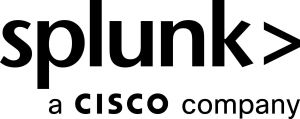List of Azure resource network interface cards
As an administrator, you want to have a high-level view of the number of NICs in your Azure infrastructure, along with their source network and source virtual machine.
Data required
Microsoft: Cloud Services network data
Procedure
- Configure the Splunk Add-on for Microsoft Cloud Services.
- Run the following search. You can optimize it by specifying an index and adjusting the time range.
sourcetype="mscs:resource:networkInterfaceCard"
|rex field=virtual_network_id "virtualNetworks\/(?<Network>.+)"
|rex field=vm_id "virtualMachines\/(?<vm>.+)"
|stats count BY location, name, properties.ipConfigurations{}.properties.privateIPAddress, properties.ipConfigurations{}.properties.privateIPAllocationMethod, Network, vm
|fields - count
|rename location AS Location name AS NIC properties.ipConfigurations{}.properties.privateIPAddress AS "Private IP" properties.ipConfigurations{}.properties.privateIPAllocationMethod AS "Allocation Method" Network AS "Source Network" vm AS "Source VM"
Search explanation
The table provides an explanation of what each part of this search achieves. You can adjust this query based on the specifics of your environment.
| Splunk Search | Explanation |
|---|---|
|
|
Search only Azure resource network interface card usage data. |
|
|
Extract the network ID from the full path name. |
|
|
Extract the virtual machine name from the full path name. |
|
|
Count the number of instances for a combination of location, name, IP address, allocation method, and source network, and VM. Return one row for each distinct combination of values. |
|
|
Remove the count field from the results. |
|
|
Rename the fields as shown for better readability. |
Next steps
Sample results for this search are shown in the table below. The results show all network interface cards provisioned in the environment, including the name of the virtual machine (VM) that the NIC is contained within. This data could be the foundation for asset management data collection. Inventory and asset management tracking is considered a best practice in the ITIL framework. A search like this can be used to gather information on provisioned assets, in this case virtual networks. Asset management is critical in the cloud because it affects operation expenses, as well as security, and informs lifecycle management.
| Location | NIC | Private IP | Allocation Method | Source Network | Source VM |
|---|---|---|---|---|---|
|
|
|
|
|
|
|
|
|
|
|
|
|
|
|
|
|
|
|
|
|
|
|
|
|
|
|
|
|
|
|
|
|
|
|
You might also be interested in other processes associated with the Managing Azure cloud infrastructure use case.

